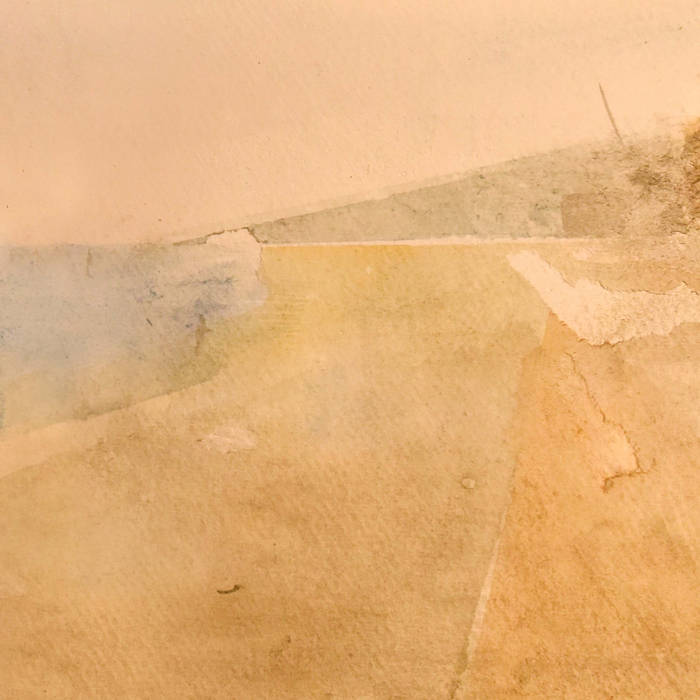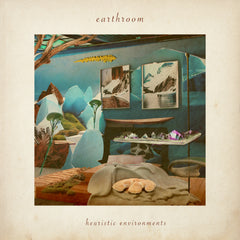Aqeel Aadam // Swim, Simian LP
- Availability:
アメリカ・フィラデルフィアのネオクラシカル〜IDM作家Aqeel Aadamが、2021年10月に同国ラスベガスのアンビエントレーベルMystery Circlesから200部限定でリリースした最新作です。
メランコリックなポストロック〜ネオクラシカル寄りのIDM9曲を収録。DLコード付属。
レーベルその他作品はこちら /// Click here to see more Mystery Circles releases available at Tobira.
---------------------
Edition of 200.
Artist statement, Aqeel Phillips, Oct 2021:
"I was profoundly inspired by the Black Lives Matter protests of 2020 which encouraged the deepening of my knowledge about the subject. The issues at hand are like a background context that you’re always aware of, but it takes time and age to really come to grips with the true reality of injustices that were committed. As a person of mixed race, it’s always been a thing for me, but it has tended to be something that I think I tried to remain agnostic of, rather than think about too strongly. In many ways, this album was inspired by coming to understand and acknowledge the visceral truths of our history.
One of the ways that this came to manifest was the idea of a “fish out of water”, or that old saying about how judging a fish on whether it can climb a tree will make you think that the fish is “stupid” or poorly designed. I thought on the realities of the Atlantic slave trade - robbing people from their homes, dropping them onto a new continent, forcing them to learn a new language or a new religion - and then judging them as “stupid” for talking differently or as “savage” if they had different customs. I found it vastly deepened my respect for African American achievements in art, academics, and beyond - not just surviving in this context but thriving and triumphing. This was what I found most inspiring while constructing this project.
The name of the album comes from the “aquatic ape theory”. I consider it to be in series with my previous album, named Hollow Moon after the conspiracy theory that the Moon might be hollow, and thinking of the metaphors or allegories that could be made with this concept. The aquatic ape theory is based on the belief that humans lived primarily in water at some point in their evolution. Unlike the “fish out of water,” I found it somewhat believable that humans might actually be able to survive in such conditions and learn to adapt. I found this to represent the reality of Black Americans as well - displaced, but ultimately adapting and learning to thrive. For the inspiration behind the actual title, Swim, Simian, I was attracted to the ambiguity and uncertainty in the name. “Simians” are the biological superclass of both humans and apes. This is a biological fact, and yet it immediately conjures ideas of what it might represent in our societal context - an entire group of people fighting for centuries to be considered human, and not something less. To call a person a “simian” (or even an “animal”) isn’t wrong, but why does it feel so? Is the possibility of alternative interpretation an accusation in and of itself?
For me, the title conjures the image of a slave jumping overboard a slave ship and desperately swimming for freedom. I felt that the title could equal parts evoke a prayer that their kin might offer them, or something mocking that a slave driver might yell behind them. I think the interpretation is left in the listener’s hands."
Artist : Aqeel Aadam
Label : Mystery Circles
アメリカ・フィラデルフィアのネオクラシカル〜IDM作家Aqeel Aadamが、2021年10月に同国ラスベガスのアンビエントレーベルMystery Circlesから200部限定でリリースした最新作です。
メランコリックなポストロック〜ネオクラシカル寄りのIDM9曲を収録。DLコード付属。
レーベルその他作品はこちら /// Click here to see more Mystery Circles releases available at Tobira.
---------------------
Edition of 200.
Artist statement, Aqeel Phillips, Oct 2021:
"I was profoundly inspired by the Black Lives Matter protests of 2020 which encouraged the deepening of my knowledge about the subject. The issues at hand are like a background context that you’re always aware of, but it takes time and age to really come to grips with the true reality of injustices that were committed. As a person of mixed race, it’s always been a thing for me, but it has tended to be something that I think I tried to remain agnostic of, rather than think about too strongly. In many ways, this album was inspired by coming to understand and acknowledge the visceral truths of our history.
One of the ways that this came to manifest was the idea of a “fish out of water”, or that old saying about how judging a fish on whether it can climb a tree will make you think that the fish is “stupid” or poorly designed. I thought on the realities of the Atlantic slave trade - robbing people from their homes, dropping them onto a new continent, forcing them to learn a new language or a new religion - and then judging them as “stupid” for talking differently or as “savage” if they had different customs. I found it vastly deepened my respect for African American achievements in art, academics, and beyond - not just surviving in this context but thriving and triumphing. This was what I found most inspiring while constructing this project.
The name of the album comes from the “aquatic ape theory”. I consider it to be in series with my previous album, named Hollow Moon after the conspiracy theory that the Moon might be hollow, and thinking of the metaphors or allegories that could be made with this concept. The aquatic ape theory is based on the belief that humans lived primarily in water at some point in their evolution. Unlike the “fish out of water,” I found it somewhat believable that humans might actually be able to survive in such conditions and learn to adapt. I found this to represent the reality of Black Americans as well - displaced, but ultimately adapting and learning to thrive. For the inspiration behind the actual title, Swim, Simian, I was attracted to the ambiguity and uncertainty in the name. “Simians” are the biological superclass of both humans and apes. This is a biological fact, and yet it immediately conjures ideas of what it might represent in our societal context - an entire group of people fighting for centuries to be considered human, and not something less. To call a person a “simian” (or even an “animal”) isn’t wrong, but why does it feel so? Is the possibility of alternative interpretation an accusation in and of itself?
For me, the title conjures the image of a slave jumping overboard a slave ship and desperately swimming for freedom. I felt that the title could equal parts evoke a prayer that their kin might offer them, or something mocking that a slave driver might yell behind them. I think the interpretation is left in the listener’s hands."
Artist : Aqeel Aadam
Label : Mystery Circles







![Primary Mystical Experience // Splash Around 2 LP [COLOR]](http://tobirarecords.com/cdn/shop/files/spl1_medium.jpg?v=1755079551)